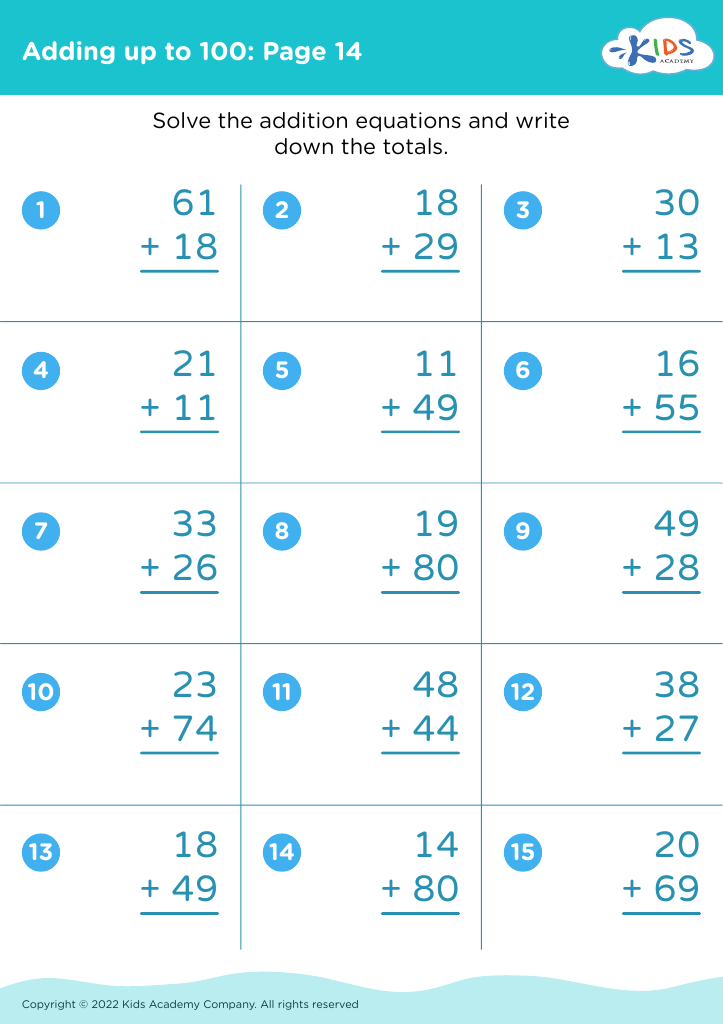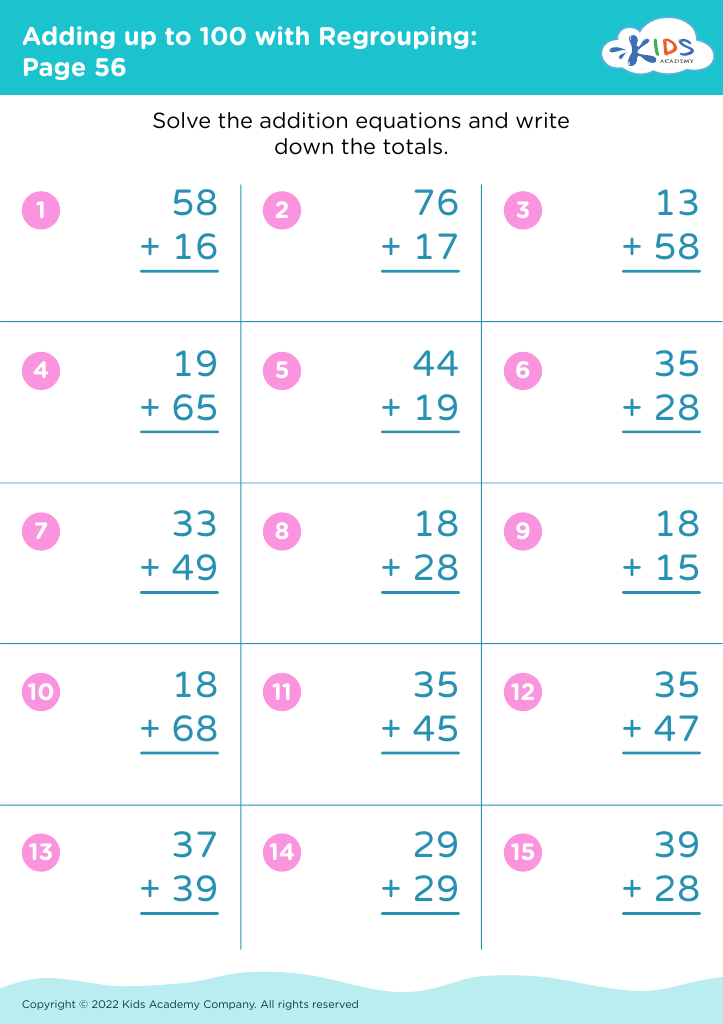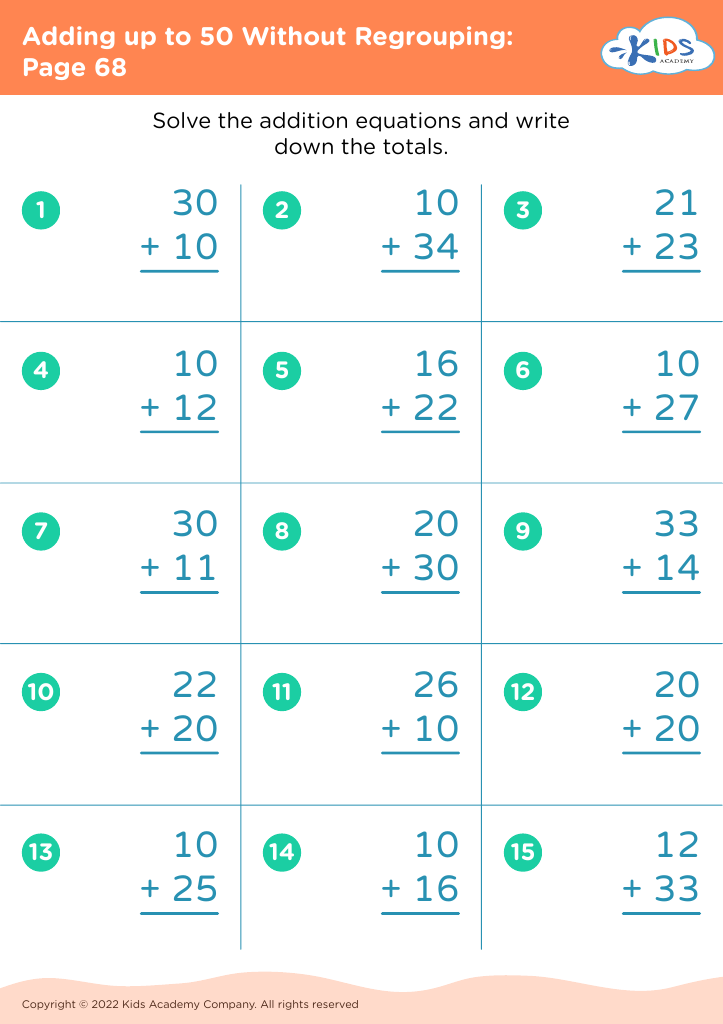Recognizing shapes Addition & Subtraction Worksheets for 8-Year-Olds - Page 2
Recognizing shapes and mastering addition and subtraction are critical components of an 8-year-old's mathematical development. Understanding shapes equips children with the foundational skills necessary for geometry, visual-spatial reasoning, and categorization. This knowledge helps them interpret the world around them, recognize patterns, and solve problems efficiently. For instance, identifying shapes helps children comprehend more complex concepts, such as fractions, symmetry, and area, which are essential for higher-level math and real-life applications like navigation and architecture.
On the other hand, addition and subtraction are fundamental arithmetic skills crucial for day-to-day activities and advanced mathematical understanding. Proficiency in these operations allows children to handle more complex tasks like multi-digit addition and subtraction, word problems, and eventually, multiplication and division. These skills also foster logical thinking, numerical fluency, and mental math capabilities. Effective arithmetic problem-solving boosts a child's confidence and lays the groundwork for future academic endeavors in STEM (Science, Technology, Engineering, and Mathematics) fields.
By focusing on these areas, parents and teachers equip children with essential tools that promote cognitive development, academic success, and practical life skills. Encouraging a solid grasp of shapes and basic arithmetic aids in nurturing well-rounded, confident, and mathematically adept young learners.
























